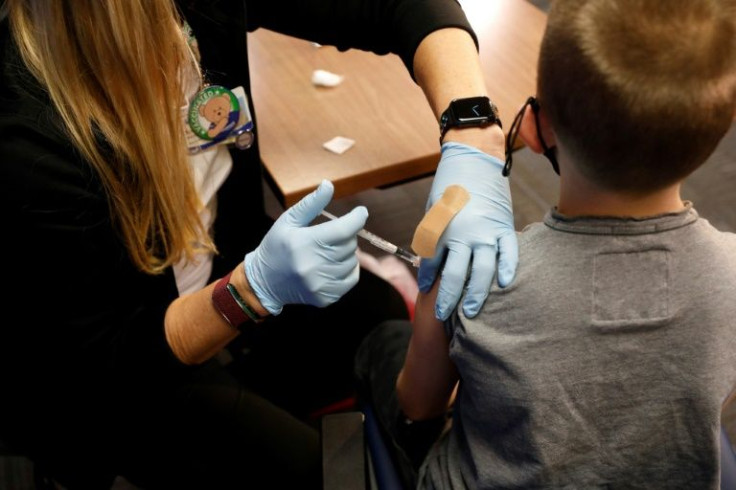Stealth Omicron Variant Is Harder To Detect, Could Be More Contagious
KEY POINTS
- The BA.2 subvariant was first discovered among virus genome data
- PCR tests may not easily detect the new subvariant
- 'Stealth Omicron' has several genetic changes not seen in the original Omicron strain
A new subvariant of Omicron, dubbed BA.2, may have genetic traits that make it harder to detect in tests than the original version of the highly transmissible variant.
Some scientists and health experts said the new sub-lineage “stealth omicron” has particular mutations that make it harder for lab-based PCR tests to detect. This means that a person who is showing symptoms attributed to “stealth omicron” may test positive for COVID-19 in all the usual tests, but they may not necessarily test positive for the new subvariant.
“It’s not that the test doesn’t detect it; it’s just that it doesn’t look like omicron,” Dr. Wesley Long, a pathologist at Houston Methodist in Texas, told AP News. “Don’t get the impression that ‘stealth omicron’ means we can’t detect it. All of our PCR tests can still detect it.”
Some scientists are also warning that the new offshoot variant, which has several genetic changes not seen in the original Omicron strain, may be more transmissible or contagious.
“We have some indications that it just may be as contagious or perhaps slightly more contagious than (original) Omicron since it’s able to compete with it in some areas,” Long added. “But we don’t necessarily know why that is.”
“Stealth omicron” was first discovered among virus genome data submitted by South Africa, Australia and Canada. Since then, the subvariant has been detected in more than 40 countries, including Denmark, India and Germany.
So far, Denmark has reported the most cases of the BA.2 stealth omicron variant, with health officials reporting 6,400 genome sequences to the GISAID Initiative last week. Scientists use GISAID to report sequenced COVID-19 samples from their country.
The new Omicron subvariant now accounts for 65% of all new infections in Denmark, State Serum Institute virologist Anders Fomsgaard wrote in an email to The Washington Post.
In the United States, at least 92 BA.2 cases were reported, as of Tuesday. The cases were detected in 22 states, including Arizona, California and Washington.
The World Health Organization has yet to consider “stealth Omicron” as a “variant of concern.” However, the WHO is asking governments and scientists worldwide to prioritize monitoring the new subvariant.

© Copyright IBTimes 2024. All rights reserved.






















